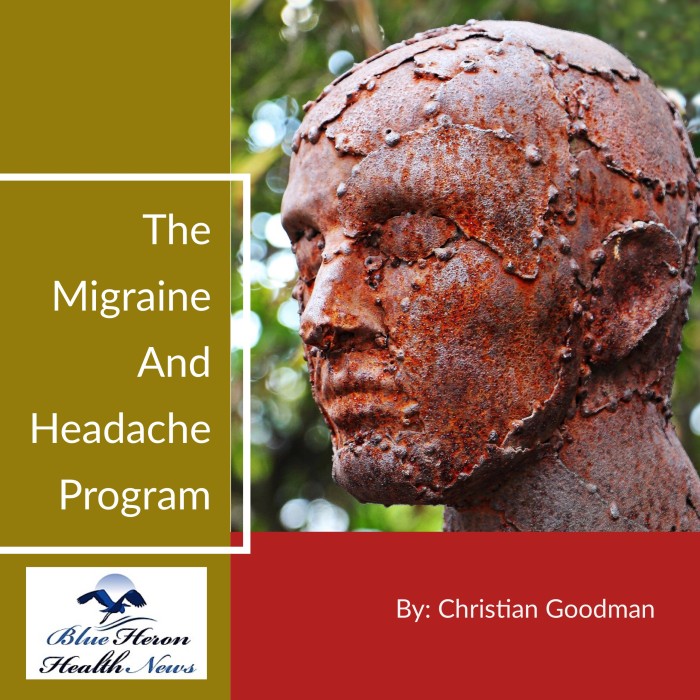
The Migraine And Headache Program By Christian Goodman This program has been designed to relieve the pain in your head due to any reason including migraines efficiently and effectively. The problem of migraine and headaches is really horrible as it compels you to sit in a quiet and dark room to get quick relief. In this program more options to relieve this pain have been discussed to help people like you.
How can acupuncture help with migraines?
Acupuncture is a traditional Chinese medicine (TCM) practice that has been used for thousands of years to treat various ailments, including migraines. It involves the insertion of thin needles into specific points on the body, known as acupoints, to stimulate the body’s natural healing processes. The use of acupuncture for migraine management has gained attention for its potential to provide relief from symptoms and reduce the frequency and severity of migraine attacks. Here’s an in-depth look at how acupuncture can help with migraines:
1. Mechanisms of Action in Migraine Relief
Acupuncture is thought to alleviate migraines through several mechanisms:
- Modulation of Pain Pathways: Acupuncture can influence the body’s pain pathways, potentially reducing the perception of pain. It is believed to stimulate the release of endogenous opioids, such as endorphins and enkephalins, which are natural pain-relieving chemicals. This effect can help decrease the intensity of migraine pain.
- Regulation of Neurotransmitters: Acupuncture may help regulate neurotransmitters involved in pain and mood regulation, such as serotonin and dopamine. This modulation can contribute to pain relief and an overall sense of well-being, potentially reducing the frequency of migraine attacks.
- Improvement of Blood Flow: Acupuncture can influence blood flow and circulation, which may be particularly beneficial for migraines. By improving blood flow to the brain and reducing vasoconstriction (narrowing of blood vessels), acupuncture may help alleviate migraine symptoms associated with vascular changes.
- Reduction of Inflammation: Acupuncture has been shown to have anti-inflammatory effects, which can help reduce inflammation-related pain and discomfort associated with migraines. By modulating inflammatory cytokines, acupuncture can help lower inflammation levels in the body.
- Balancing the Autonomic Nervous System: Migraines are often associated with autonomic nervous system dysfunction. Acupuncture may help regulate this system, promoting a balance between the sympathetic (fight-or-flight) and parasympathetic (rest-and-digest) branches. This balance can reduce the stress response and potentially decrease the likelihood of migraine onset.
2. Acupoints Commonly Used for Migraine Treatment
Acupuncturists select specific acupoints based on TCM principles and the individual’s symptoms. Some commonly used acupoints for migraine treatment include:
- LI4 (Hegu): Located between the thumb and index finger, this point is often used to relieve headache and facial pain.
- GB20 (Fengchi): Located at the base of the skull, this point is used to relieve headaches, neck pain, and stiffness.
- ST36 (Zusanli): Located below the knee, this point is used to strengthen the body’s overall energy and immune response.
- SP6 (Sanyinjiao): Located above the ankle, this point is used to calm the mind and relieve pain.
- Taiyang: Located in the temple area, this point is often used to alleviate headache pain.
3. Benefits of Acupuncture for Migraine Management
Acupuncture offers several potential benefits for individuals suffering from migraines:
- Reduction in Frequency and Intensity: Studies have shown that acupuncture can reduce the frequency and intensity of migraine attacks. It may also decrease the duration of migraine episodes.
- Improved Quality of Life: By reducing migraine symptoms, acupuncture can improve overall quality of life. Patients often report better sleep, reduced stress levels, and an enhanced sense of well-being.
- Non-Pharmacological Treatment Option: Acupuncture provides a drug-free alternative for migraine management, which can be particularly valuable for individuals who cannot tolerate medications or are concerned about side effects.
- Complementary to Other Treatments: Acupuncture can be used alongside conventional medical treatments, such as medications, physical therapy, and cognitive-behavioral therapy. This integrative approach can enhance overall treatment efficacy.
- Individualized Treatment: Acupuncture treatments are tailored to the individual’s specific symptoms and health status. This personalized approach can address the unique triggers and manifestations of migraines in each patient.
4. Considerations and Limitations
While acupuncture can be an effective treatment for migraines, there are some considerations and limitations to be aware of:
- Variable Efficacy: The effectiveness of acupuncture can vary between individuals. Factors such as the practitioner’s skill, the specific acupuncture points used, and the patient’s overall health can influence outcomes.
- Need for Multiple Sessions: Acupuncture often requires multiple sessions to achieve significant results. Patients may need to commit to a series of treatments over several weeks or months.
- Risk of Adverse Effects: While acupuncture is generally considered safe when performed by a trained practitioner, there is a small risk of adverse effects such as soreness, bruising, or infection at the needle sites. It is important to seek treatment from a licensed and experienced acupuncturist.
- Integration with Conventional Care: Patients should inform their healthcare providers about their use of acupuncture, especially if they are taking medications or have underlying health conditions. This ensures a coordinated approach to care.
Conclusion
Acupuncture is a valuable option for managing migraines, offering a natural and holistic approach to pain relief and symptom management. By modulating pain pathways, regulating neurotransmitters, improving blood flow, reducing inflammation, and balancing the autonomic nervous system, acupuncture can help reduce the frequency, intensity, and duration of migraine attacks. While individual responses to acupuncture may vary, and multiple sessions may be required, many patients find significant relief from this therapy. As part of a comprehensive treatment plan, acupuncture can complement other medical and non-medical interventions, providing a well-rounded approach to managing migraines.

The Migraine And Headache Program By Christian Goodman This program has been designed to relieve the pain in your head due to any reason including migraines efficiently and effectively. The problem of migraine and headaches is really horrible as it compels you to sit in a quiet and dark room to get quick relief. In this program more options to relieve this pain have been discussed to help people like you.